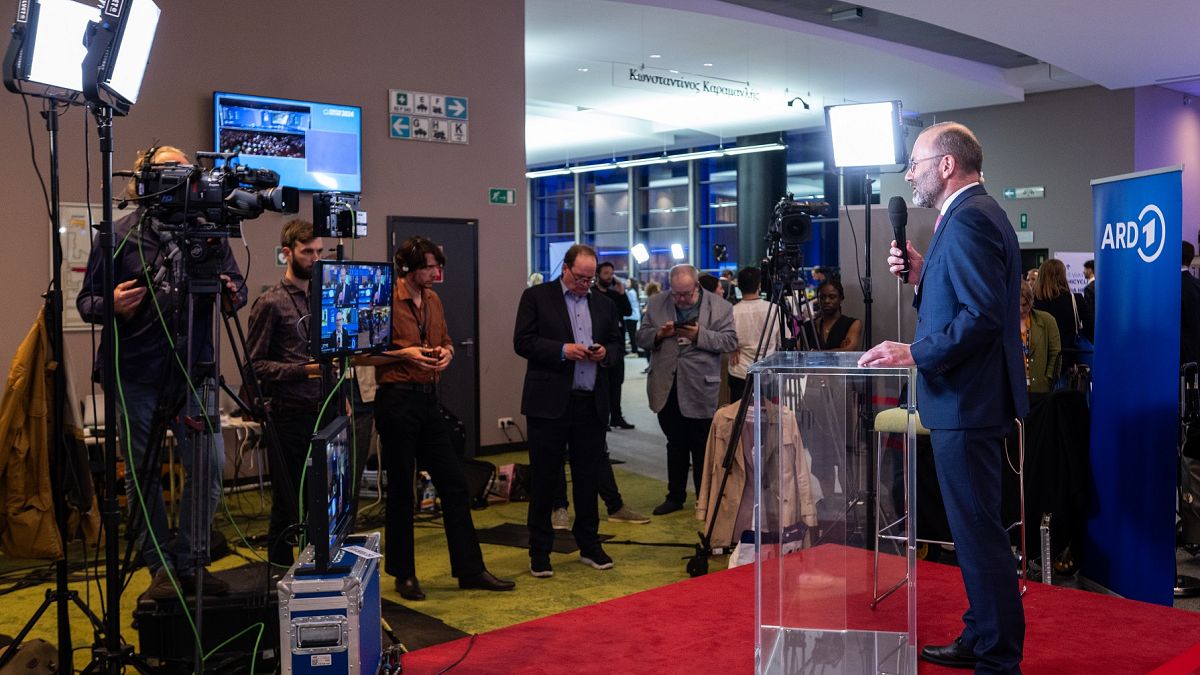While the European Parliament is set to tilt to the right following last weekend’s elections, it is unlikely to mean the thousands of pages of new climate, energy and environmental law put in place under the von der Leyen Commission’s Green Deal are about to be torn up.
With a right-leaning new European Parliament emerging after EU elections preceded by thorny diplomatic discussions among member states on key environmental policy files, speculation mounts as to the future of the European Green Deal, the von der Leyen Commission’s ambitious programme to reach carbon-neutrality by 2050 and reverse biodiversity loss.
Conservatives and the far-right, political groups that have been either sceptical or outright hostile to the Green Deal, have gained seats in many countries, to the detriment of the liberal Renew group and, in particular, the Greens – a new status quo that will likely see intense debate over the effective implementation of green policies through the next legislative term.
While Ireland and Italy still need to finish the count of their elected MEPs, a glimpse at the provisional list of lawmakers composing the Greens/European Free Alliance political group shows nine EU countries — Bulgaria, Cyprus, Estonia, Greece, Hungary, Malta, Poland, Portugal and Slovakia — lacking even a representative in the European Parliament.
For Chris Rosslowe, a senior data analyst at think tank Ember Climate, the loss of 18 of the Greens’ 71 seats in the European Parliament doesn’t necessarily mean a “widespread rejection” of climate action. He attributed the receding of 2019’s ‘green wave’, mainly in France and Germany, to “a combination of national factors”, but noted that polls “consistently show support” for climate action across Europe, even in those countries.
“I’m confident we won’t see a reversal of the Green Deal, especially the energy transition aspects, which are firmly in the implementation phase,” Rosslowe told Euronews. “Key files such as the Renewable Energy Directive are already having a measurable impact, with last year seeing record additions of wind and solar power.”
Hinting at a potential constructive dialogue to ensue, an EU official who did not wish to be named observed that the political parties that formed the majorities for the European Green Deal’s adoption are still “broadly in the same position” as they were in the previous Parliament.
“These parties have not called into question the Paris Agreement or the EU Climate Law, which is where our policies stem from,” the EU source said.
At their first group meeting since the elections, on Wednesday (12 June), leading Green MEPs expressed a willingness to join a broad coalition of centrist political parties in exchange for backing Ursula von der Leyen in her bid for a second term as European Commission president – even if that involves compromising on some of their more ambitious manifesto positions.
Commenting on a potential “green backlash” under pressure from newly emboldened right-wing groupings in the parliament, Andreas Rasche, a professor at Copenhagen Business School, rejected the idea that the EU was on the verge of a complete U-turn on environmental policy.
“We are likely to see a slowing down of green policymaking and less ambitious legislation,” Rasche said, pointing to several laws that have already been weakened, such as new laws on corporate sustainability due diligence and packaging and packaging waste.
There is also the key Nature Restoration Law, already adopted by the parliament but blocked by a minority of member states. The outgoing Belgian presidency of the EU Council has put it on the agenda of a ministerial summit next Monday (17 June) in the hope of a last-minute breakthrough before Hungary takes over the reins in July.
Heads of government are expected to adopt the EU’s next five-year Strategic Agenda at a European Council summit on 27-28 June, a non-legislative document that is nonetheless intended to guide the policy making of the next Commission. Rasche expects the focus will shift away from environmental issues to concerns over security and competitiveness, in line with the prevailing geopolitical winds and leaks of early drafts.
Nonetheless, despite a seemingly smaller appetite for further action pushed by the European Green Deal, Rasche deemed it “unlikely” that less appetite for initiating fresh environmental legislation would extend to a large-scale reversal of the raft of climate, energy and environmental legislation already put in place over the past five years, and now awaiting implementation.
The academic points, however, to exceptions that may come under “significant pressure”, notably the de facto ban on the sale of new petrol and diesel cars from 2035 and the 2040 target for greenhouse gas emissions. The climate law requires the adoption of the intermediate goal on the path to net-zero by 2050, but it remains to be seen if there will be political support for cut of at least 90% on 1990 levels, as recommended by EU scientists and the incumbent Commission.
Speaking to reporters on Wednesday, Dutch Green MEP Bas Eickhout pointed to a symbiosis between pressing ahead with the energy transition and securing the future of European manufacturing, “We have also presented our vision [for a] European Green Industrial Strategy, and this is also, on purpose, a kind of a focus that we would like to see.”
The co-leader of the Greens’ election campaign also pointed to a secret weapon the party secured during the election, in the person of outgoing environment commissioner Virginijus Sinkevičius, who has staunchly defended Green Deal proposals in the parliament and Council throughout his mandate. Sinkevičius has been elected as an MEP in his native Lithuania.
“It’s a powerful MEP we have here,” Eickhout said when asked by Euronews if his party hoped to edge its new Lithuanian lawmaker toward the chair of the parliamentary environment committee. “So we’re going to discuss that.”

